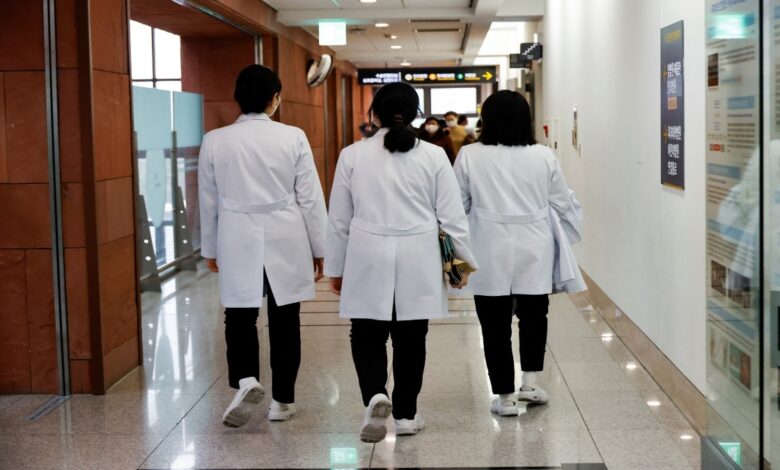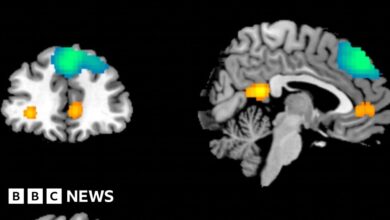Being and becoming a good doctor in the age of artificial intelligence – Firstpost

Representational image. Reuters
A few years ago, I was on a return flight from New Delhi to Paris and New York, when the chief flight attendant suddenly broke up the humming silence and asked passengers to ring the call bell if anyone was a doctor. One physician, a tall and handsome young man, quietly rang the bell and was ushered to the front of the plane where another flight attendant was in physical distress due to a panic attack. The doctor provided the treatment, and the patient was stabilised. Just a respectful and quiet thank you from the crew at the end of the flight along with a bottle of champagne and a cache of 75,000 frequent flier miles as a token of appreciation! A good doctor in the neighborhood is a great blessing.
“Wherever the art of medicine is loved,” thus spoke Hippocrates, “there is also a love of humanity.” The ancient Greek physician (460-370 BC), regarded as the father of medicine, also gave budding doctors the oath, “First Do No Harm.” But now when healthcare has become a most essential human right, much more is expected from doctors.
Today doctors, with and without borders, are in the killing fields of Ukraine and Gaza risking their lives to save lives. During the Covid-19 pandemic doctors and medical professionals played heroic roles, working endless days and nights, to save as many people as they could from an unprecedented massive global health crisis. Unbeknown to many of us, artificial intelligence played a crucial role in the development of Covid vaccines and the logistics of the vaccines global distribution.
Early this month Dr Saeed Hassapour, director of the
Center for Precision Health
and Artificial Intelligence at Dartmouth College, organised a symposium that drew some of the most brilliant AI experts, physicians, and researchers including, among others, Dr Curtis Langlotz, a Stanford Professor and president of the Radiological Society of North America, known for his work in applying AI in medical imaging, and Dr Faisal Mahmood, an Associate Professor at Harvard Medical School, credited for his contributions to digital pathology and AI in cancer diagnosis, prognosis, and biomarker discovery.
The interdisciplinary gathering of experts discussed how AI can provide valuable insights from vast amounts of digital health data, leading to more efficient and personalised care. There was a strong emphasis upon the importance of ethical integration of AI tools into healthcare practices and the need for medical professionals to be trained on how to use these technologies responsibly and effectively.
AI algorithms can assist radiologists at every step of the imaging process; for example, providing inputs to help decide which imaging tests to order; enhancing image quality; detecting imaging problems to ensure faulty images are retaken; conducting preliminary assessment; and serving as virtual assistants for reporting observations and following up with patients. The goal is to eliminate human errors.
As Sian Beilock of Dartmouth College pointed out in her opening remarks at the symposium, researchers are developing AI tools to help diagnose colorectal cancer and identify novel biomarkers for breast cancer, offering quicker and more accurate detection to facilitate timely treatment. Digital mental health technologies, such as web-based and mobile tools, are being developed to transform mental healthcare. These tools can impact mental health outcomes of users by predicting behaviours, symptoms, and engaging in interventions and therapeutic approaches based on the predicted symptoms.
With its capacity to sift through massive amounts of digital health data, AI can detect patterns that are hard for humans to see, thus helping radiologists to detect subtle signs of cancer with greater accuracy and informing which course of treatment is most likely to work for a patient with a certain medical history. That’s the wonderful world of IA medicine dawning upon us.
But it also raises important and complex questions about security, privacy, biases, ethics, and equity. And that brings us back to the pivotal role of doctors, and how best to educate them in the age of AI. Under their white coats, habitual smiles and calm demeanour, let’s not forget, doctors are people too with the same human frailties as any of us—families under stress, fear and hopes about growing children, divorces, addictions, and most of all the pressure to keep up professionally with Joneses. Just think about Dr House in the American television medical drama where Gregory House (Hugh Laurie), a brilliant and unconventional diagnostician but a person with compromised ethics and messed up life, and given to substance abuse, is unable to have steady family or friendly relationships.
Although TV dramas entertain us, they do reflect social realities. The case of Dr House may be emblematic of a larger social problem of the medical community. According to
American Addiction Centers
, “Few careers have such odd working hours and so many traumatic situations as those in the healthcare industry. The high levels of stress and physical pain that often come with this job open the door for numerous types of addiction,” adding that “approximately 5.5 per cent of medical professionals struggle with illicit drug abuse.” Equally serious is the problem of the physician burnout despite radical advancement through artificial intelligence. In 2022, for example,
71,309 doctors
gave up their profession in the US.
Medical schools and hospitals don’t talk about it. Perhaps the next Dartmouth Dialogue or Symposium should be about doctors as humans. Along with the integration of artificial intelligence with healthcare, the foundation of medical education needs a reset. It should rest firmly on the Humanities, Medical Humanities, as someone suggested in a recent dinner conversation I had with some Dartmouth alumni and friends.
The art and science of medicine, the liberal arts, and the humanities—song and dance, musicals, theatre, comedy—go together to make a good doctor in the age of artificial intelligence. More than anyone else, doctors need a good side-splitting belly-laugh once in a while.
Narain Batra is the author of ‘India In A New Key: Nehru To Modi’. He is affiliated with Norwich University, US. Views expressed in the above piece are personal and solely those of the writer. They do not necessarily reflect Firstpost’s views.
Find us on YouTube



